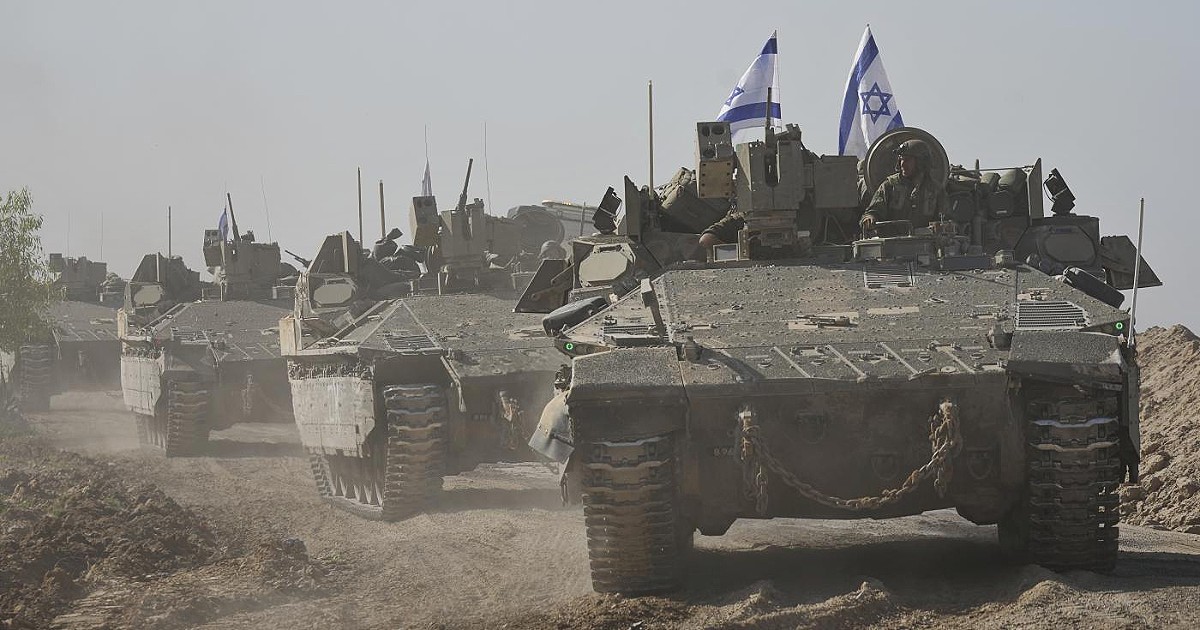BarcelonaAs Russians begin voting on the first day of Russia's presidential elections, a new war front is opening up for Vladimir Putin in the south of the country. After the first incursion of pro-Ukrainian forces last Tuesday, on Thursday, three battalions of the former Russian army launched a new attack on the Russian provinces of Belgorod and Kursk. On the eve of elections that will give Putin another six years as president, the three armed groups that support Ukraine wanted to sow chaos in the Russian region close to the country's border. Moscow announced that it repelled a new attack by these militias, which led to the death of 195 people. But military bloggers and Ukrainian sources say the fighting continues.
In fact, Ukrainian intelligence sources have confirmed that Russia's Belgorod and Kursk regions have already become “active combat zones.” Russia also reported that it shot down up to six missiles fired by the Ukrainian army over its territory in Belgorod. The Russian military statement that reported the killing said, “Units of the Russian army thwarted, with preventive measures, another attempt by the Ukrainian armed forces to penetrate the Russian borderlands in the area of the town of Spodaryushino in the Belgorod region.” 195 Ukrainian soldiers were killed and five tanks were destroyed. In last Tuesday's operation, the Russian army announced the killing of 234 pro-Ukrainian soldiers and the destruction of seven tanks.
They are not actually soldiers in the Ukrainian army, but members of three forces made up of former Russian soldiers fighting the Kremlin and supporting Ukraine: the Free Russia Legion, the Russian Volunteer Corps, and the Siberian Battalion. They are forces composed mainly of exiled Russians. The Russian Volunteer Corps is a markedly neo-Nazi group, but the Free Russia Corps is fairly liberal but without professing any ideology. In any case, these groups operate under the umbrella of the GUR, Kiev's intelligence services, although they often do not have formal contracts with the government, but rather operate as volunteers, despite receiving support and training from Volodymyr Zelensky's army.
On Thursday, the Russian Freedom Corps posted a message on the Telegram application to residents of the Russian border regions of Bryansk, Belgorod, and Kursk, urging them to evacuate or go to shelters. Pro-Kremlin military bloggers also condemned the incursion and quoted residents of Spodaryushino in Belgorod as saying: “The enemy is fifty meters away and is throwing grenades at us.” Russian army sources said that Thursday's raids would have succeeded in penetrating the towns of Spordaryushino and Kozinka in Belgorod and the town of Tetkino in Kursk Province. Think tank Independent Institute for the Study of War (ISW). In Kozinka, pro-Ukrainian brigades tried to advance in armored vehicles. One of the Russian bloggers loyal to Putin reported that a group of “thirty saboteurs” arrived in Spodaryushino by penetrating Russian territory from the Ukrainian town of Sumy in northeastern Ukraine.
Uncertainty, especially opacity, is maximum. The Kremlin is trying to hide the facts so as not to cause panic, and Kiev does not officially follow them either because it confirms that they are not Ukrainian soldiers. “We are talking about Russian citizens who, having no other options, defend their civil rights against Putin’s regime with weapons,” said Andrei Yusov, spokesman for the GUR leadership.
At least two dead in Belgorod
Tuesday's incursions into Russian territory failed to capture any Russian city, and despite the media chaos, Thursday's operation also seemed unlikely. The first strike of such a ground offensive – on Russian territory from Ukraine – was in May 2023 and also did not lead to any significant military gains. But continued incursions “will likely force the Kremlin to choose between paying the reputational cost or the resource cost of responding,” the institute noted in its daily balance sheet of the war.
According to this Think tankThe Kremlin now faces the dilemma of choosing between diverting its military resources to the border region to repel these attacks and protect its population, at the expense of its military operations in Ukraine, or keeping all its forces on Ukrainian territory and the armed forces. It faces “the reputational cost of accepting the fact that pro-Ukrainian forces will sometimes be able to make minimal effective cross-border incursions into Russia.”
After the May 2023 incursion, Russia had previously outsourced border security to Rosgvardiya (Russian military guards) and some Chechen elements, without significantly impacting its military operations in Ukraine, and may now choose to do the same, says the Institute for the Study of War.
Shifting metaphors or enhancing censorship?
Analysts attach little military significance to these incursions, which do not appear to achieve effective control over any Russian territory. Right now, it's more about the raids generating chaos and damaging the reputation of Putin's regime, which is powerless to defend its citizens in the border region with Ukraine.
However, in the midst of the presidential election, news censorship is stronger than ever, so these border measures may not have the same impact as in 2023, when Russian military bloggers harshly criticized Defense Minister Sergei Shoigu and the Chief of Staff. Valery Gerasimov. This failure to protect the border was one of the elements that prompted the rebellion of the leader of the Wagner mercenaries, Yevgeny Prigozhin, on June 24, against the repeated failures of the official leaders of the Russian military operation against Ukraine.
But since then, the Kremlin has made significant efforts to censor any criticism of the Defense Ministry and the conduct of the war, including arresting some military bloggers, according to the Institute for War Studies. Prigozhin's mysterious death in a plane crash also sent a strong message to critics. Perhaps this is why reactions to this week's raids from the Russian blogosphere have been devoted to criticizing Ukraine and not focusing on Russia's lack of defense capability in the border areas.

“Freelance social media evangelist. Organizer. Certified student. Music maven.”



